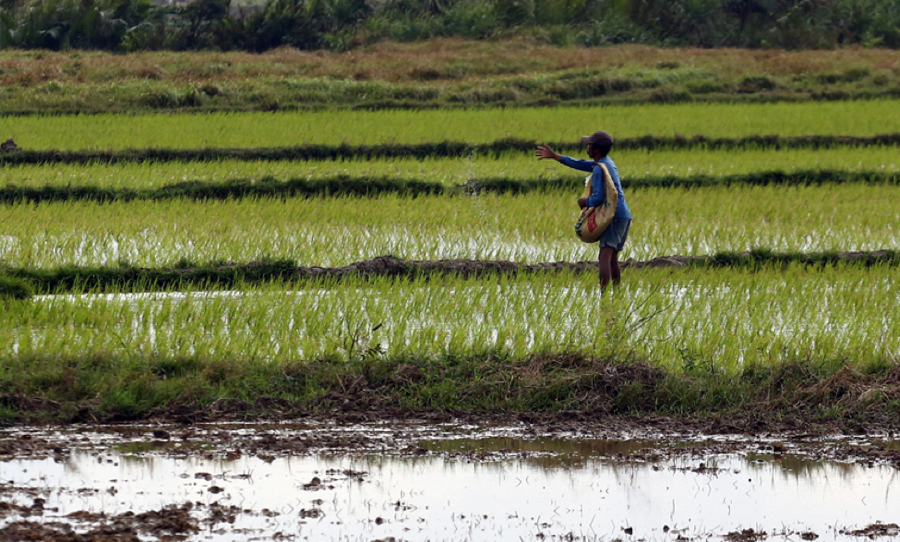
The Department of Agriculture or DA should speed up the creation of an industry roadmap, seen as crucial in driving agriculture stakeholders amid this year’s Association of Southeast Asian Nations or ASEAN integration, Valenzuela City Congressman Win Gatchalian urged.
The ASEAN integration will establish the Asean Economic Community or AEC by Dec. 31 of this year.
“It’s already 2015 and the DA has yet to unveil its roadmap. Expediting the roadmap for agriculture is an urgent task as a third of our labor force relies on it for their livelihood,” said Gatchalian, a majority member of the House Committee on Trade and Industry.
Related News: Solon warns against amending Charter to allow foreigners land ownership
Agriculture is one of the five main sectors whose cross-border investment has been liberalized by ASEAN member states.
The Philippines is already lowering tariffs on imported goods following the ASEAN free trade, except for rice, sugar, and corn, said DA Undersecretary Emerson Palad in a forum at the Benguet Agri-Pinoy Trading Center this January.
The Department of Agriculture is also looking at making agricultural produce competitive in terms of international food standards and safety.
However, compared to the Department of Trade and Industry, which already came up with a roadmap for manufacturing, the DA has yet to produce a masterplan for the sector.
Such a roadmap for agriculture is important as the ASEAN integration will surely affect 30 percent of the country’s 37.31 million employed, based on initial figures by the Philippine Statistics Authority.
Related News: Gatchalian says country’s ‘rice self-sufficiency’ remains an elusive dream
Gatchalian also asked the government to accelerate public-private partnership or PPP projects concerning agriculture, such as the National Irrigation Administration’s irrigation project and the Clark Green City Food Processing Terminal.
As of Mar. 10, the former is still under conceptualization while the latter is still in the process of getting a transaction advisor.
“At this pace, these PPP projects on agriculture will not benefit those in the agriculture sector even by the end of the Aquino administration next year,” said Gatchalian.
He asked, “How is the agriculture sector supposed to be competitive with our ASEAN counterparts if the involved agencies show half-baked commitment?”
In the Philippines, the national average for regular-milled rice in wholesale is $0.80 per kilogram, far higher than the $0.33 and $0.44 prices of export rice (25 percent broken) per kilogram in Vietnam and in Thailand as of February this year.
Related News: Gatchalian: Cha-Cha to shoot up unemployment
Gatchalian maintained that the DA has to formulate and immediately implement roadmaps for specific agriculture subsectors, given that the industry continues to perform below its potential.
“Such roadmaps should be supported by investments that will raise the productivity and welfare of both farmers and fishermen,” the solon pointed out.
Echoing the position of leading economists, Gatchalian said the country’s policy makers have to address several problems as the ASEAN integration draws nearer. Specifically, the country’s agriculture sector is not ready for the integration.
“The sector is not competitive because of the limited arable land (thanks to land reform and its mountainous terrain) and the poor public infrastructure to transport agricultural products from the farm to the market,” Gatchalian said, quoting former budget secretary Benjamin Diokno.
“The sugar industry cannot compete with Thailand. The rice industry cannot compete with Thailand and Cambodia. The mining sector is barely surviving largely because of the lack of clear mining policy. These are just some of the problems, which the government should immediately address before the ASEAN integration’s D-Day.” (Monica Cantilero)
Related News: Agriculture chief should face DOJ panel over garlic cartel allegations


